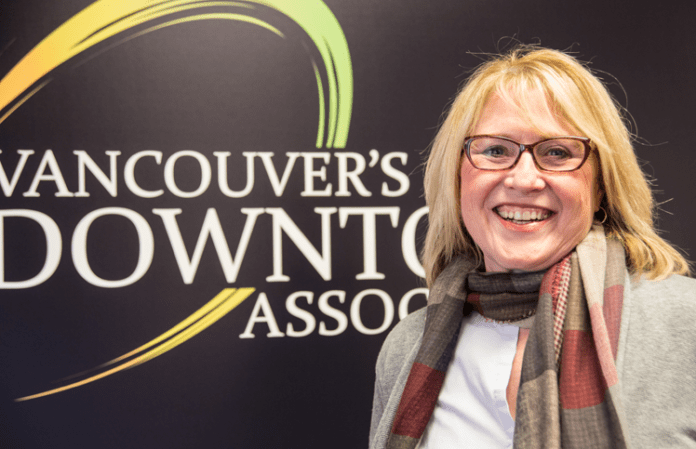As Vancouver enters its third year with an Innovation Partnership Zone (IPZ) designation, officials say the city is poised for significant business growth.
“The last two years have been marked by successful strategic partnerships between private industry, education and government to build a strong and supportive network for our existing tech companies that will also appeal to potential company recruitments,” said Max Ault, director of business growth and development for the Columbia River Economic Development Council (CREDC).
In 2013, the Washington State Department of Commerce designated downtown Vancouver’s start-up community and the technology campuses along the 192nd corridor as IPZ areas focused on digital technology acceleration.
 “Since receiving the IPZ designation, the region has made significant progress on efforts to support the applied digital technology cluster here in Southwest Washington,” said Ault.
“Since receiving the IPZ designation, the region has made significant progress on efforts to support the applied digital technology cluster here in Southwest Washington,” said Ault.
Downtown Vancouver has grown from 12 to about 45 tech and digital marketing companies, including Ambient, GG Interactive (Garage Games) and Blue Blazes, to name a few.
While there are no significant new IPZ-related plans for 2016, the designation will continue to provide resources for existing companies and those looking to locate in the tech corridors, said Sandra Towne, IPZ administrator and planning manager for the city of Vancouver.
The program’s resources include marketing and networking; business development and recruiting; infrastructure and place-making; and education and training.
All IPZ areas in Washington (currently 18 across the state) must have three institutions – a research university, an industry cluster and a workforce-training provider.
Southwest Washington’s IPZ is managed by the city of Vancouver, the Columbia River Economic Development Council (CREDC) and Washington State University – Vancouver (WSU Vancouver).
These groups plan to continue to support the start-up and growth of digital technology firms by creating more affordable office space, forming a strong network of mentors and acquiring more funding, said Ault.
For example, the creation of co-working office space would increase affordability and collaboration. Offices space may coexist with event space for workshops, networking events, industry meet-ups, as well as mentorship services.
Over the next few years, it’s important to continue to build a network of mentors who have experience in building and scaling successful companies, said Ault.
“Our region should also look to leverage formal funding partners that support the development of high-growth and novel tech firms,” said Ault. “We have already seen great success in partnering with the Oregon Angel Fund (in Portland) to increase their network and presence in Southwest Washington.”
Downtown Vancouver growth
Employees in IPZ-related jobs have boosted downtown Vancouver’s restaurant and retail sales and will continue to do so in 2016, said Lee Rafferty, executive director of Vancouver’s Downtown Association.
“Downtown Vancouver is definitely in a forward trajectory,” said Rafferty. “From our perspective, this influx of employees, investors and creative people has been a major factor in the uptick in downtown’s core.”
Discover Org, a marketing and sales firm, moved its headquarters to downtown last year with 150 employees, and plans to add another 150 employees. “When you add that many people to downtown, people are going to feel it,” she said.
For example, a handful of new restaurants plan to open in downtown Vancouver this year. And investment property owners continue renovate old building interiors to attract the type of tenant start-up workers want to frequent.
“It’s amazing what this segment of employees have done and will continue to do for the vibrancy of downtown,” said Rafferty.
Preparing students for local tech jobs
As an IPZ partner, WSU Vancouver grooms students – many who stay in Southwest Washington after graduation – to enter programming and engineering positions throughout Vancouver.
Students in the Creative Media and Digital Culture (CMDC) program work on projects – like animation, app and website development – for local businesses and go on to land jobs at Vancouver media and tech companies.
And for the second year in a row, WSU Vancouver’s School of Engineering and Computer Science will team up with start-ups and large tech companies in Vancouver to place juniors or seniors in one of at least 18 summer internship positions. Companies may decide to hire these students full-time after graduation.
“The tech industry is related to economic growth, and it’s the leading provider of well paying jobs,” said Hakan Gurocak, professor and director of the School of Engineering and Computer Science at WSU Vancouver. “The internship program is a nice way for companies to participate and test out the students, and for students to test out the companies as future employers.”
Besides coaching college students, the IPZ offers networking events and industry meet-ups. This year, the IPZ has teamed up with the Greater Vancouver Chamber of Commerce to offer a digital technology expo luncheon in April on topics including online presence, mobile, IT support and business software solutions.
Another networking outreach program includes Vancouver Ruby, a web development networking group, that meets the first and third Thursday of the month at downtown Vancouver breweries and coffee shops.
The IPZ designation lasts for four years. The state of Washington has not yet decided whether it will reinstate Vancouver’s designation for a second term.
To learn more about IPZ events, go to ipzgetin.com or contact Sandra Towne at Sandra.towne@cityofvancouver.us.
To learn about becoming a business partner with WSU Vancouver’s computer science and engineering internship program, contact Erin Hardy at encs.connections@wsu.edu.








